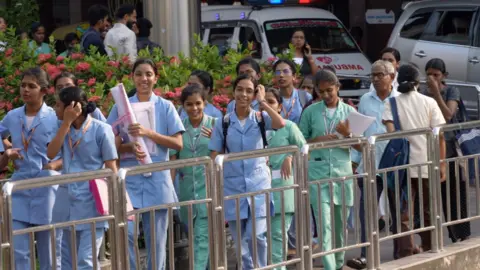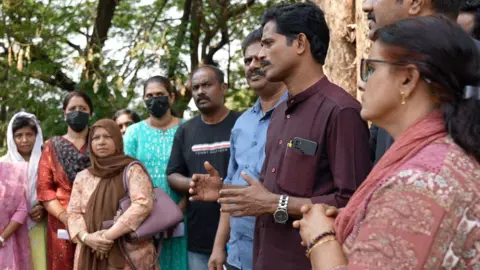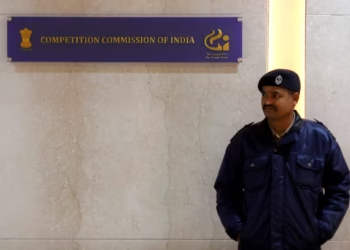For many in Kerala, the UK’s care worker visa was seen as a gateway to a more secure future. The visa allowed migrants to bring their families along while providing a stable job in the UK’s social care sector. However, for hundreds of care workers, the dream has turned into a nightmare. Reports have emerged of fraudulent job offers, exorbitant fees paid to agents, and workers left stranded without employment or financial support.
The BBC has uncovered widespread exploitation in the recruitment process, with many Indian workers paying thousands of pounds only to find that their promised jobs did not exist. As they struggle with debt, unemployment, and legal barriers, justice remains elusive.
The False Promise of Stability
The UK added care workers to its shortage occupation list during the pandemic, making it easier for international workers to get sponsored employment. This move was intended to address the acute staffing shortage in the UK’s social care sector. However, it also opened the door for fraudulent recruitment practices, leaving many Indian workers financially and emotionally devastated.
In Kerala, agents promised guaranteed jobs in the UK’s care sector in exchange for payments ranging from £15,000 to £20,000. Many took out loans, borrowed from family, or used their life savings to secure these opportunities. But upon arrival in the UK, many found themselves without work or forced to endure exploitative conditions.
Arun George’s Story: A Dream That Cost Everything
Arun George (not his real name) spent half his working life saving up £15,000. His goal was to secure a care worker job for his wife in the UK, believing it would provide a better future for their child with special needs. The job offer came through Alchita Care, a private domiciliary care provider in Bradford.
After making the payment in late 2023, the couple moved to the UK. But when they arrived, there was no work waiting for them. They repeatedly contacted the care home, only to be given excuses. Eventually, after much pleading, they were offered unpaid training and a mere three days of work. With no income and mounting expenses, they were forced to return to India, financially ruined.
Mr George believes he was scammed and says the experience has set him back at least a decade. His story is not unique—hundreds of care workers from Kerala share similar experiences.
Trapped in Debt and Despair
Another victim, Sridevi (name changed), spent £15,000 on visa sponsorship fees and an additional £3,000 on travel to the UK. Unlike Mr George, she remains in the UK but is struggling to survive.
Her job is nothing like the stable eight-hour work schedule she was promised. Instead, she is on call from 4 am to 9 pm, travelling from one patient’s home to another. However, she is only paid for the time she spends with patients, not the hours she spends travelling between jobs. With no stable income, she struggles to afford rent and food.
Many others who made similar journeys are living in desperate conditions, relying on charity to survive. Some report surviving on “bread and milk” from charity shops, unable to afford proper meals.
A Widespread Exploitation Network
The scale of the exploitation is vast. Thousands of nurses from Kerala migrate to the UK every year, seeking employment in the care sector. Since the pandemic, recruitment agencies have taken advantage of this demand, making false promises and charging excessive fees.
In Kothamangalam, Kerala, a group of 30 people revealed to the BBC that they had collectively lost millions of dollars trying to obtain care worker visas. Many of them had never even left India, having been defrauded before their journey could begin.
Several victims named a single agent, Henry Poulos, and his company, Grace International, as the main culprit behind their losses. Poulos allegedly provided fake sponsorship letters, charged exorbitant fees, and even sent workers on expensive trips to Delhi for non-existent visa appointments.

Authorities Struggle to Act
The UK Home Office acknowledged in 2023 that care workers were being exploited through fraudulent recruitment practices. In response, it revoked over 450 sponsor licences, including that of Alchita Care.
Despite these efforts, many workers remain trapped in the system, unable to find justice. Cross-border fraud makes legal action difficult. Many victims made payments to recruiters and care homes based outside India, leading to jurisdictional issues.
In Kerala, local police have launched investigations into fraudulent recruitment agents. The police in Kothamangalam have sealed the local offices of Grace International, but its founder, Henry Poulos, is reportedly absconding in the UK. Indian authorities have stated they will seek Interpol assistance if necessary.
Legal Barriers to Justice
Even when victims seek legal recourse, they face significant hurdles. Most care workers have already spent their life savings or taken on debt, leaving them unable to afford expensive legal battles.
Baiju Thittala, a Labour Party member and the mayor of Cambridge, has represented at least ten victims over the past three years. He estimates that between 1,000 and 2,000 people from Kerala have been affected by these scams. However, he notes that the legal complexities of cross-border fraud make it difficult for victims to recover their money.
The previous Conservative government in the UK admitted last year that there was “clear evidence” of exploitation within the care sector. In response, stricter visa regulations were introduced in 2024. These included raising the minimum salary for care workers and banning them from bringing dependents to the UK, making the visa less attractive to families.
The Financial and Emotional Toll on Families
For those who have returned to India, the financial burden is devastating. Many took out high-interest loans to fund their move, believing they would earn enough in the UK to repay the debt. Instead, they are now struggling to meet basic expenses.
Shilpa, a victim from Alleppey, borrowed money at a 13% interest rate to pay for a fake job offer. She had hoped to provide a better future for her three daughters but is now struggling to pay their school fees.
Binu, another victim, previously worked in Israel, where he and his wife earned a comfortable £1,500 per month. Believing that the UK would offer even better opportunities, he left his job and moved back to Kerala in preparation for migration. Now, having lost everything to fraud, he has been forced to withdraw his children from private school due to financial hardship.
Future Prospects for Migrant Care Workers
While the UK government has tightened regulations to prevent further exploitation, many victims feel abandoned. The new rules make it harder for care homes to recruit foreign workers, but they do little to help those already trapped in debt.
For those still in the UK, the struggle continues. Without steady employment, many are facing homelessness and severe financial distress. Those who have returned to India are fighting an uphill battle to rebuild their lives.
The UK care sector remains heavily reliant on migrant workers, and the demand for carers has not diminished. However, until stronger protections are put in place, migrant workers will remain vulnerable to exploitation.
For the hundreds who have already fallen victim, justice remains a distant dream.











